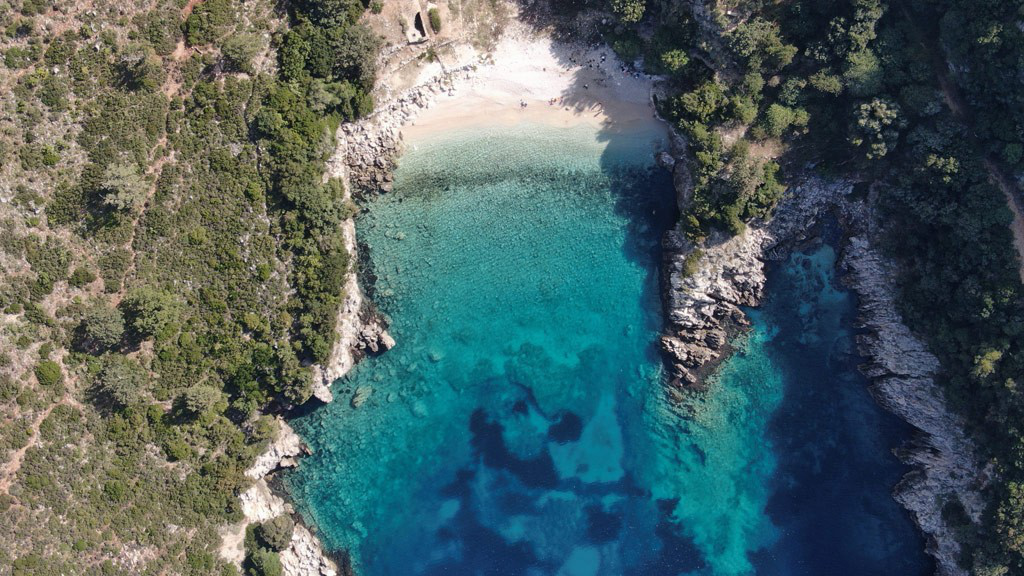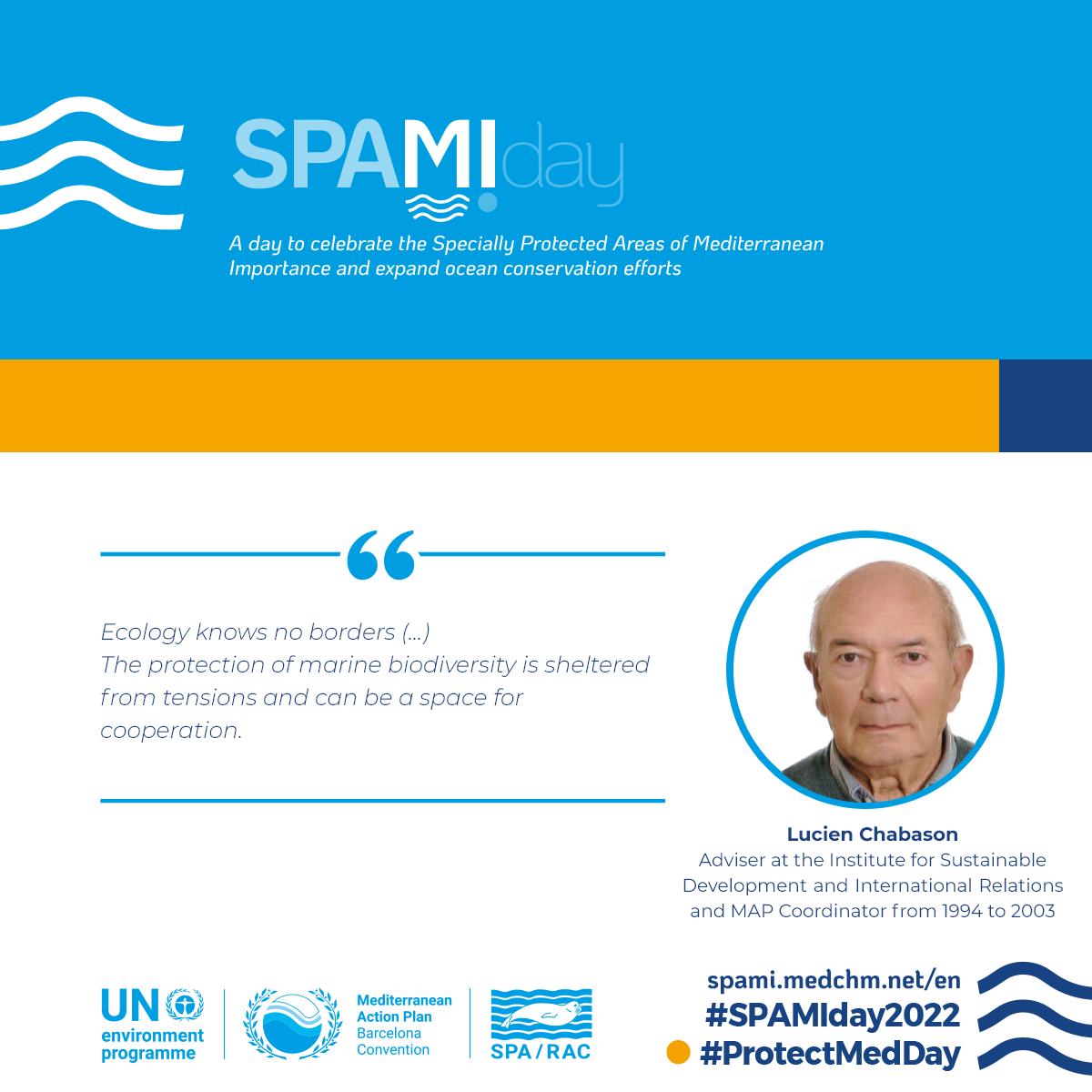
"The protection of marine biodiversity is safe from tensions and can be an area of cooperation".
Every year, on April 15, the Mediterranean region will celebrate a new official day dedicated to Specially Protected Areas of Mediterranean Importance (SPAMI). The establishment of SPAMI Day is an initiative of the Mediterranean Action Plan of the United Nations Environment Programme (UNEP/MAP) and SPA/RAC, the Specially Protected Areas Regional Activity Center of the UNEP/MAP, based in Tunisia. To tell us about the genesis and the importance of the SPAMI List, we asked three questions to Mr. Lucien Chabason, adviser at the Institute for Sustainable Development and International Relations and MAP Coordinator from 1994 to 2003.
Q1/ At a time when all the actors around SPAMIs are preparing to meet in Monaco, could you enlighten us on the context of the creation of the SPAMI List?
LC : The context was first of all a global context with a major revival of international environmental policy, following the Rio Conference in 1992 and the adoption of the principles of sustainable development. These principles were then taken up in a Mediterranean context. The Conference of the Parties to the Barcelona Convention, which met in Antalya in 1993, called for a revision of the Barcelona Convention to bring it into line with Agenda 21 adopted in Rio. It also requested that the Protocol concerning Specially Protected Areas, which was already in force, be updated. The text of this protocol was revised in 1994.
There was an idea of having an exceptional list, a list of exceptional sites in the Mediterranean, which certainly came from the success of the World Heritage Convention. We had a very good inventory which had been done by SPA/RAC, and especially, a list of assets of exceptional value and a very exact idea of the remarkable sites of the Mediterranean, from a biological point of view.
Q2/ Was there a particular reason for the creation of the SPAMI List?
LC : The main reasons are ecological but there were also legal reasons. The sea is divided into political spaces: the territorial sea, the exclusive economic zones, when there are any and the high seas, while ecology knows no borders. It was also a slogan of the time. This is particularly true in the Mediterranean for migratory species such as sea turtles, which circulate from one country to another by crossing the different zones, and the same for marine mammals. I give these two examples because they are significant of a heritage whose protection should not take political borders into account. At the time, all the countries had established limits of the territorial seas of twelve miles, with the exception of the Aegean Sea which was still at six miles. Thus, the Aegean Sea, which is extremely rich, was almost entirely under the regime of the high seas, beyond national jurisdictions.
The context was very favorable because the Barcelona Convention covers the entire Mediterranean. This was not the case for the other regional conventions, with the exception of OSPAR. The Barcelona Convention is competent for all countries and there was no reason to limit the establishment of Specially Protected Areas to the territorial sea.
For the SPAMIs, everything was a question of process, i.e., how to establish them and who would be responsible for them. The principle of establishing Specially Protected Areas of Mediterranean Importance, including on the high seas, was adopted unanimously.

Q3/ Do you think that in these times of ecological emergency and international tensions, SPAMIs can be buoys to which we cling to move forward, to find a common point between all these nations, all these peoples around the Mediterranean?
LC : Is the protection of marine biodiversity sheltered from these tensions and can be a space for cooperation? I think so. I see it in the decision that was taken by the parties at the last COP in Antalya, to jointly propose an area for the reduction of air pollution from ships. It's a joint decision and this very positive. This proves that on such an important subject, the countries have confidence in the MAP which remains sheltered from political controversy. These same states have always kept it safe from political tensions and strategic issues. And we must continue on this path, including on a global scale, within the framework of UNEP.
Of course, I am under no illusions. It is obvious that international cooperation for the protection of the environment is currently slowing down and that mistrust is re-establishing itself a little. We see it in the framework of the Climate Convention and post Aichi negotiation, but I believe that the Barcelona Convention is safe for the time being and that it continues to serve as a platform for cooperation. I would really like to see more transnational SPAMIs, meaning proposed by two or more countries, in particular in the Aegean Sea.
There are also areas of concern, such as the protection of sea turtle breeding sites and nesting sites. This is a highly symbolic issue for the MAP, in the same way as the effective protection of Posidonia meadows. I have great confidence in MAP's ability to carry out these protection actions.
Cover Photo: Karaburun Sazan ©AdZM Vlore
